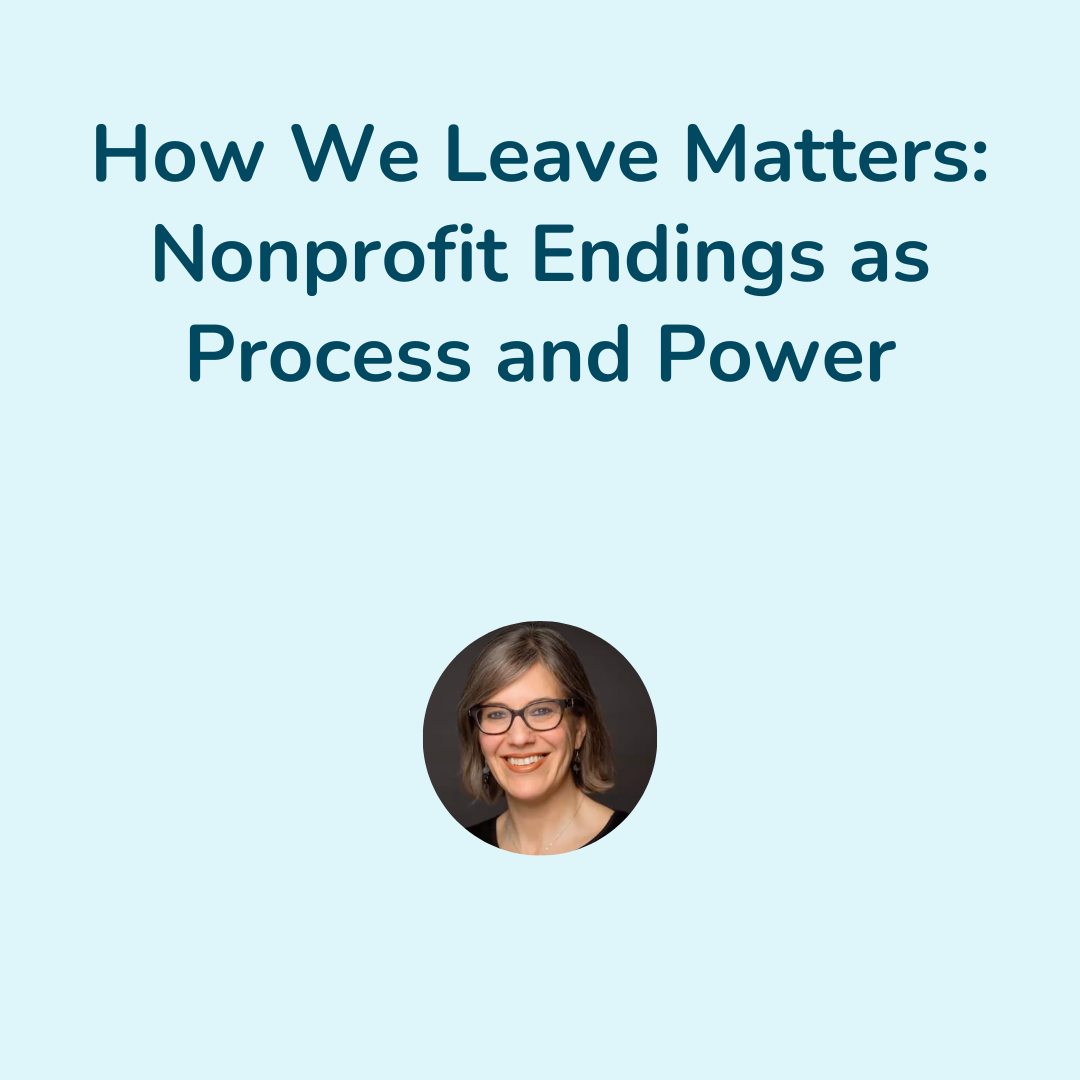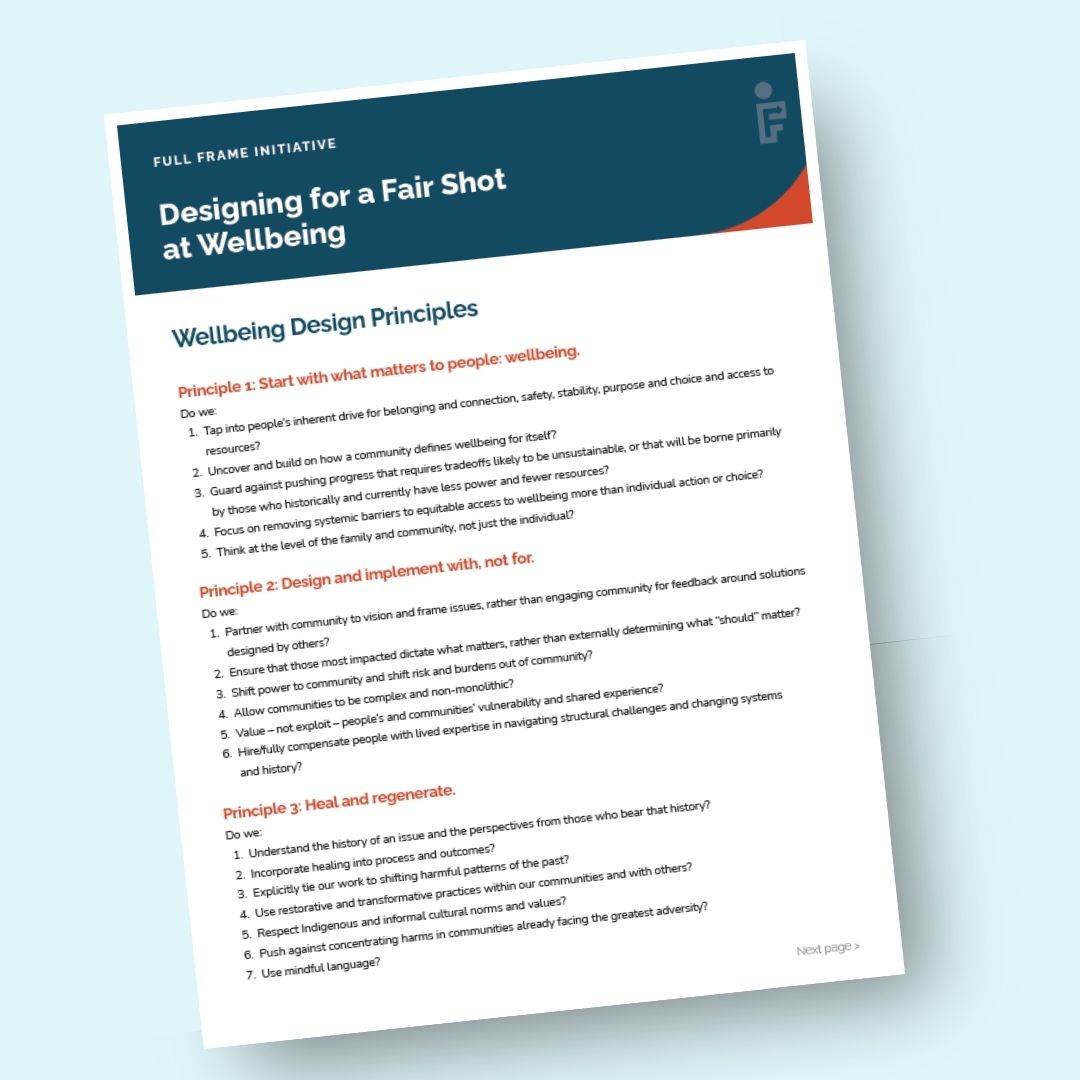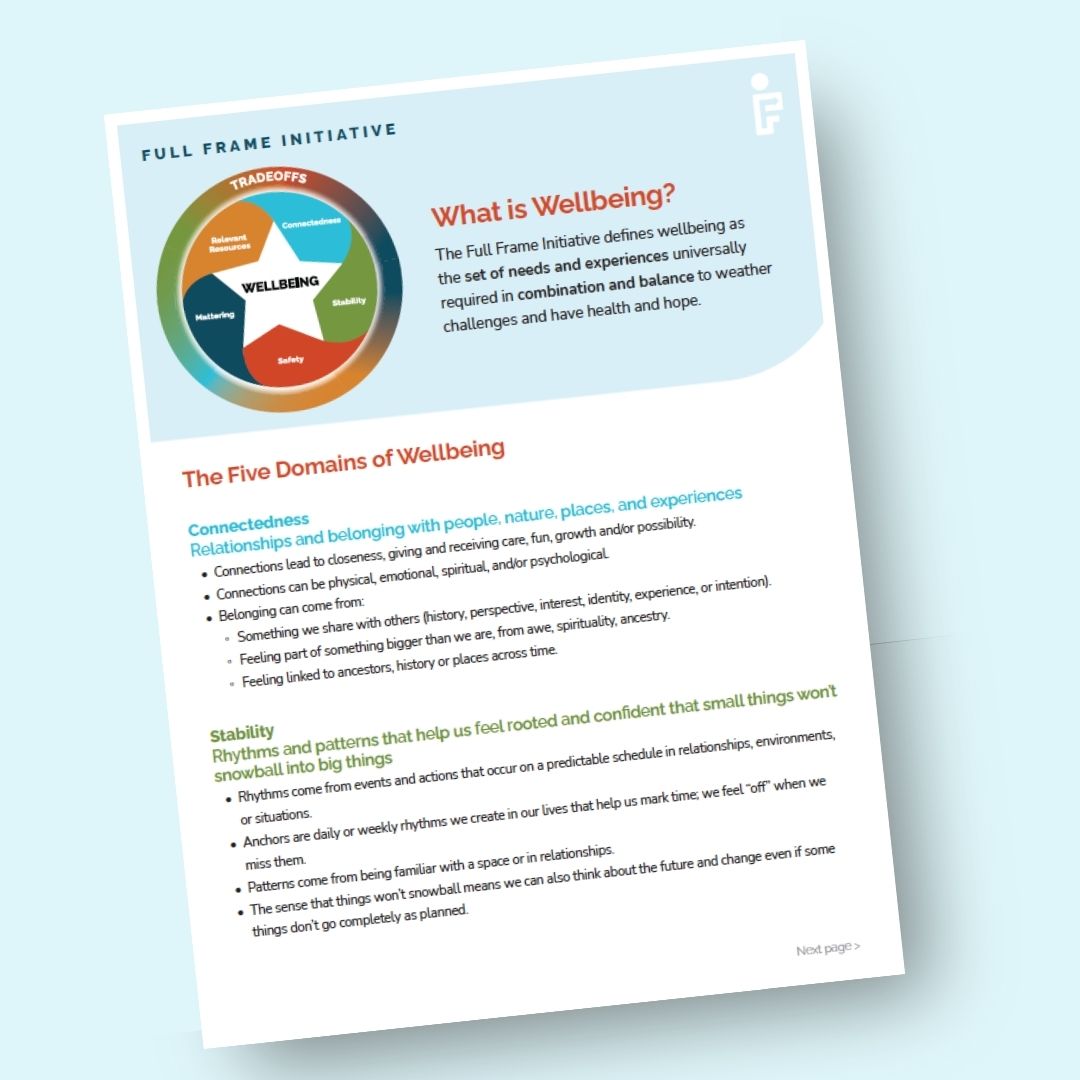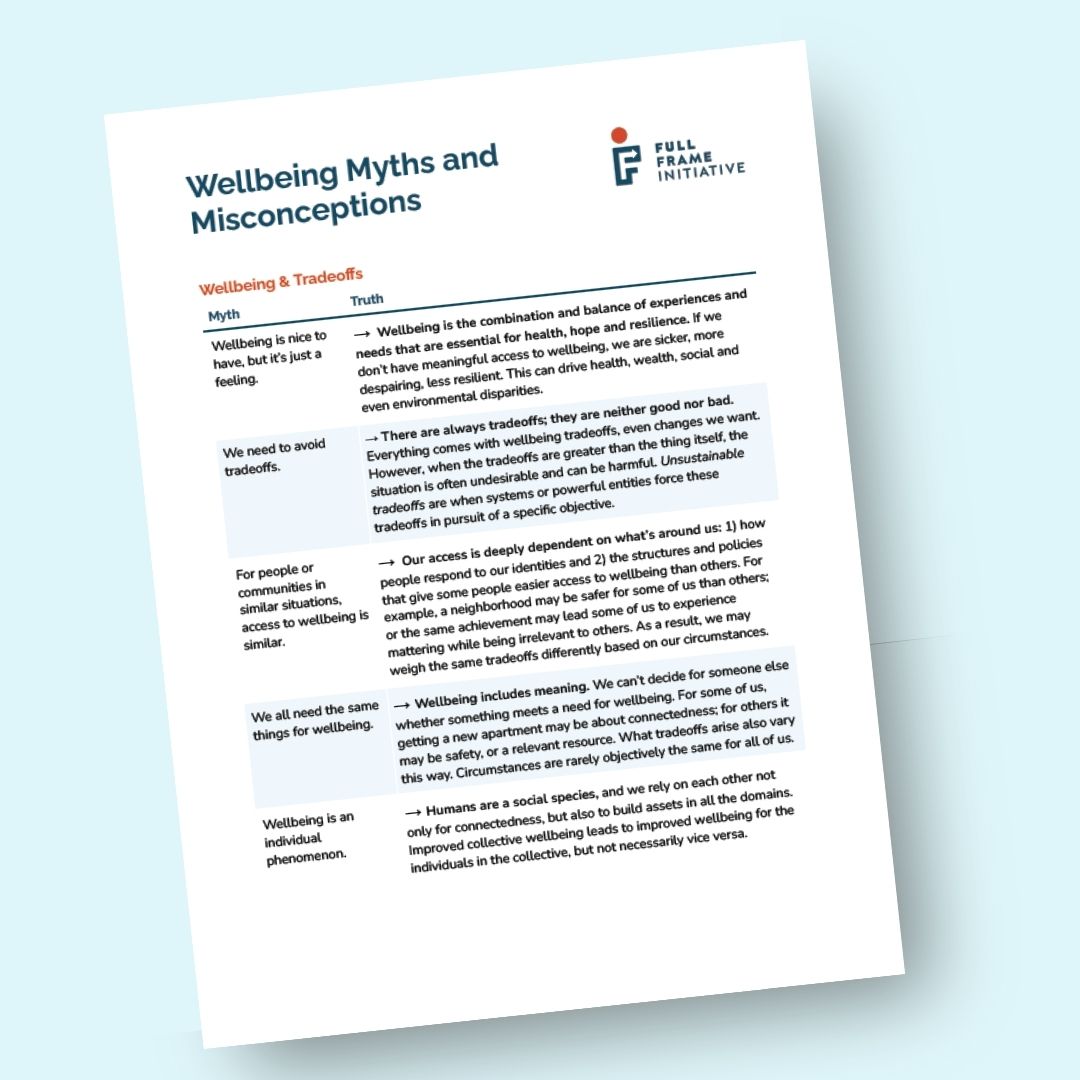FFI Founder & CEO Katya Fels Smyth shared about our mission transition as part of the RX Foundation’s Power is a Social Determinant of Health series.

FFI Founder & CEO Katya Fels Smyth shared about our mission transition as part of the RX Foundation’s Power is a Social Determinant of Health series. Topics covered in this conversation included:

How can we ensure that everyone has a fair shot at wellbeing? Utilize our Wellbeing Design Principles to turn the wellbeing framework into action.

The Full Frame Initiative defines wellbeing as the set of needs and experiences universally required in combination and balance to weather challenges and have health and hope.

Wellbeing isn't just a "nice to have." In this resource, we break down the myths and misconceptions about wellbeing and tradeoffs.